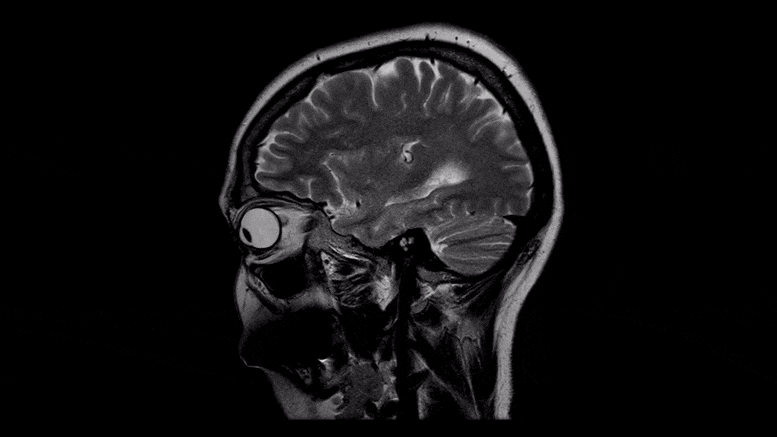
Exposure to antibiotics in utero or after birth could lead to brain disorders in later childhood, says Rutgers researcher.
Antibiotic exposure early in life could alter human brain development in areas responsible for cognitive and emotional functions, according to a Rutgers researcher.
The laboratory study, published in the journal iScience, suggests that penicillin changes the microbiome — the trillions of beneficial microorganisms that live in and on our bodies — as well as gene expression, which allows cells to respond to its changing environment, in key areas of the developing brain. The findings suggest reducing widespread antibiotic use or using alternatives when possible to prevent neurodevelopment problems.
Penicillin and related medicines (like ampicillin and amoxicillin) are the most widely used antibiotics in children worldwide. In the United States, the average child receives nearly three courses of antibiotics before the age of 2. Similar or greater exposure rates occur in many other countries.
A Link Between Microbiome, Immunity, and the Brain
“Our previous work has shown that exposing young animals to antibiotics changes their metabolism and immunity. The third important development in early life involves the brain. This study is preliminary but shows a correlation between altering the microbiome and changes in the brain that should be further explored,” said lead author Martin Blaser, director of the Center for Advanced Biotechnology and Medicine at Rutgers.

The study compared mice that were exposed to low-dose penicillin in utero or immediately after birth to those that were not exposed. They found that mice given penicillin experienced substantial changes in their intestinal microbiota and had altered gene expression in the frontal cortex and amygdala, two key areas in the brain responsible for the development of memory as well as fear and stress responses.
A growing body of evidence links phenomena in the intestinal tract with signaling to the brain, a field of study known as the “gut-brain-axis.” If this pathway is disturbed, it can lead to permanent altering of the brain’s structure and function and possibly lead to neuropsychiatric or neurodegenerative disorders in later childhood or adulthood.
Rising Rates of Neurodevelopmental Disorders
“Early life is a critical period for neurodevelopment,” Blaser said. “In recent decades, there has been a rise in the incidence of childhood neurodevelopmental disorders, including autism spectrum disorder, attention deficit/hyperactivity disorder, and learning disabilities. Although increased awareness and diagnosis are likely contributing factors, disruptions in cerebral gene expression early in development also could be responsible.”
Future studies are needed to determine whether antibiotics directly affect brain development or if molecules from the microbiome that travel to the brain disturb gene activity and cause cognitive deficits.
Reference: “Effects of early-life penicillin exposure on the gut microbiome and frontal cortex and amygdala gene expression” by Angelina Volkova, Kelly Ruggles, Anjelique Schulfer, Zhan Gao, Stephen D. Ginsberg and Martin J. Blaser, 15 July 2021, iScience.
DOI: 10.1016/j.isci.2021.102797
The study was conducted along with Zhan Gao at Rutgers and Blaser’s former graduate student Anjelique Schulfer, as well as Angelina Volkova, Kelly Ruggles, and Stephen Ginsberg at New York University, who all played important roles in this joint Rutgers-New York University project.
Never miss a breakthrough: Join the SciTechDaily newsletter.
19 Comments
My friend was born premature, admitted into special care baby unit, received unquantifiable doses of penicillin. Today he is alive;not only with amazing cognitive function but also a medical doctor. Penicillins are drugs of choice for some early childhood illnesses.There could be resultant increase in infant mortality if not used when necessary.
For shame! Can you imagine if someone reads the headline and doesn’t understand what the research refusing penicillin, the drug of choice for group b strep, and ends up with a blind child? I understand you need views but this kind of fear mongering is shameful.
So now we know what happened to Trudope
Are researchers considering the benefits of exclusive breastfeeding in their experiments/studies? Breastmilk is full of beneficial microbes and helps lay the foundation of the gut microbiome. During treatment with antibiotics, these microbes would be diminished but once treatment has ceased, can breastmilk remediate the effects and repopulate the gut?
Here we go,m. While I do not condone to over use of antibiotics, I can tell you my child had his fair share of antibiotics due to constant ear infections. He graduated at 16 and now at 35 years older makes six figures. My money is on the ingredients in some of these vaccines that are pushed through too fast.
Thio or sulphur based. Organs and chemicals seem to be hormone and autism
Related .
Would it help the baby is breastfed? Since it has live bacteria
At 2months old, in 1970, I contracted spinal meningitis. Baby I caught fr. died. Got 104° temp, spine started to go into seizures, but Dr. I had was giving me overdose shots of penicillin. Thank God & him becuz I lived. Destroyed my immune system badly but at least I got to live w/o any brain damage. Penicillin cc an be great!
In 1980 i was very sick in last trimester of pregnancy. I did not want to but had to take 3 different rounds of antibiotics to get well. The doc told me my illness was worse for my son than meds. I breastfed for 2 years to help him. He was a very active alert child with no fear. He tried everything. He’s in special forces in high risk jobs now. He’s an excellent father and officer and has served his country. Variety is the spice of life?? Unfortunately his son is autistic and hyperactive. We learned from other studies future children may be affected by environmental factors. Should this be a follow up study?
Use natural and safe Colloidal Silver solution to replace all antibiotics.
Silver has been in use for thousands of years without side effect before the invention of antibiotics. But because of greed for money, Big Pharma censored its usages.
Dont be fooled check the pattern when newly formed vaccines for children came out. But they begin making adjustments on it to remove those side effects. Sad it had to be seen on humans before doing changes. But many get the benefits but many also became experimental subjects. Dont blame antibiotics especially penicillin. It had saved so many lives by God’s grace with very less well studied side effects.
I’m so glad I read the testimonial comments, this had me extremely worried for my 6 month old daughter. I took antibiotics for a non healing wound at 39 weeks pregnant and was almost sent into a panic by the headline!
Back in the 80s. I remember as a child every time you go to doctor they will give you antibiotic shot even if it is a checkup
My sis had meningitis when she was few months old, and was given too much of antibiotics at the time,she is still alive but has disability of learning and lacking of cognitive her hands got tremor she is disable and can’t work like the rest of us
I’m allergic to pennicillin. A doctor prescribed amoxicillin which I mistakenly thought was a safe alternative. I immediately started to react with ringing in the ears which I’ve had 2 years now.
I am a mom of four and I think this article is not demonizing antibiotics as much as it is saying let’s take a look at using them less. I’ve used antibiotics and given them to my children but often it is the first thing a Dr. Prescribes without fully knowing what the illness is. The general sentiment is to throw an antibiotic at it and see if it solves the problem. I think this is the type of practice the article is warning against. Not life saving measures or extreme (for lack of better word) circumstances. I think it is wise to consider alternatives to antibiotics when possible.
My daughter received 32 courses of antibiotics by the time she was 2 years old. She struggled with school and barely made it thru. She had crazy mood swings thru adolescence. Metabolic syndrome set in after high school and she went from a very thin 115 lbs to 230 lbs in such a fast period of time. Her height were down 2 inches from 5’7]” to 5’5″. And they are saying it’s permanent??
Thio or sulphur based. Organs and chemicals seem to be hormone and autism
Related .
Not everyone is going to be affected the same way. Just because one child didn’t have any problems with antibiotics, doesn’t mean another child with a depressed immune function or a yet unknown condition couldn’t be severely affected. There are always two sides to things. My son was prescribed antibiotics when he was very young as well. The article is not meant to shame you, it is focused on a particular finding.